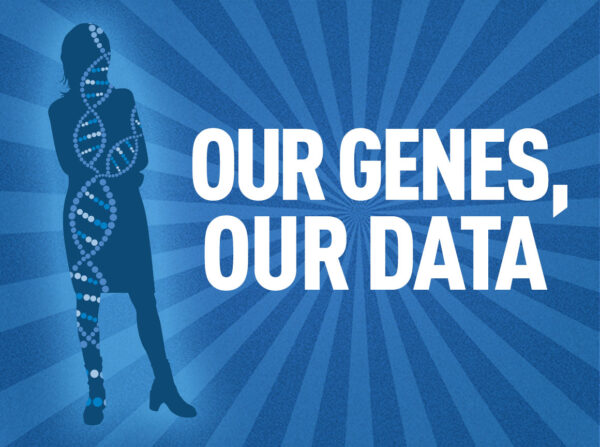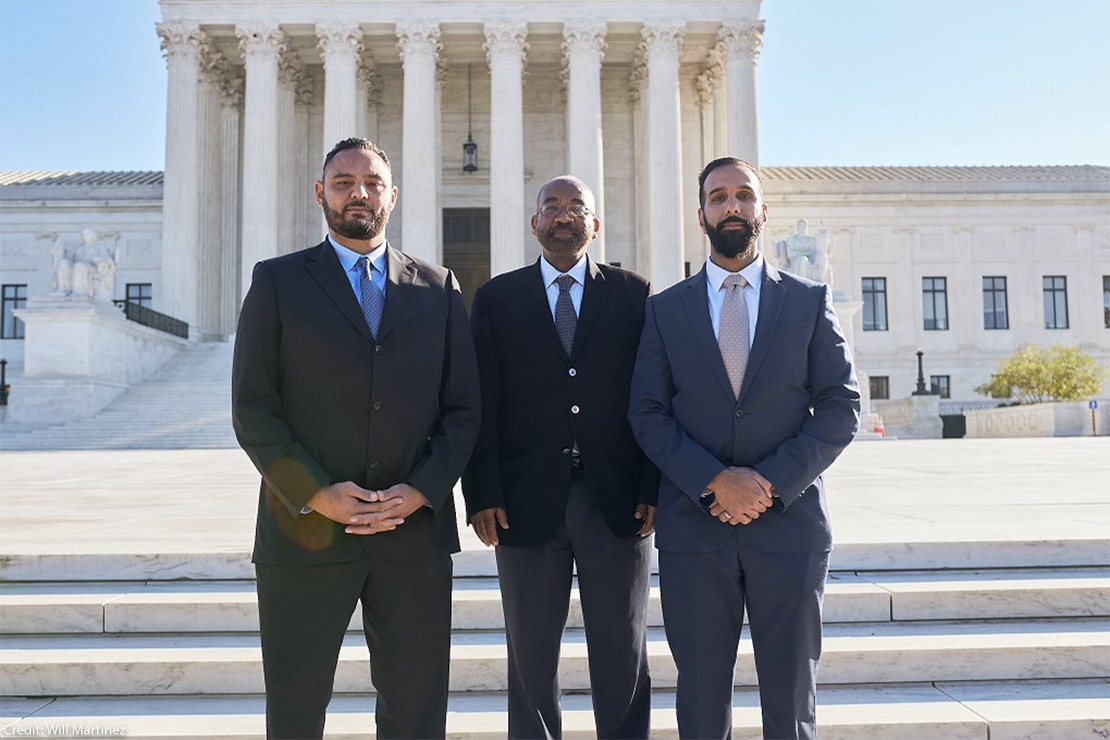Privacy & Technology
FBI v. Fazaga
In a case scheduled to be argued before the U.S. Supreme Court on November 8, 2021, three Muslim Americans are challenging the FBI’s secret spying on them and their communities based on their religion, in violation of the Constitution and federal law. In what will likely be a landmark case, the plaintiffs — Yassir Fazaga, Ali Uddin Malik, and Yasser Abdelrahim — insist that the FBI cannot escape accountability for violating their religious freedom by invoking “state secrets.” The plaintiffs are represented by the Center for Immigration Law and Policy at UCLA School of Law, the ACLU of Southern California, the American Civil Liberties Union, the Council for American Islamic Relations, and the law firm of Hadsell Stormer Renick & Dai.
Status: Closed (Judgment)
View Case
Learn About Privacy & Technology
Featured
U.S. Supreme Court
Jun 2018

Privacy & Technology
Carpenter v. United States
The Supreme Court ruled that the government needs a warrant to access a person’s cellphone location history. The court found in a 5 to 4 decision that obtaining such information is a search under the Fourth Amendment and that a warrant from a judge based on probable cause is required.
Court Case
Dec 2016

Privacy & Technology
Sarkar v. Doe - PubPeer Subpoena Challenge
The ACLU filed a motion in Michigan state court challenging the constitutionality of a subpoena issued to the website PubPeer demanding that it turn over the identities of anonymous commenters. In March 2015, the trial judge ruled that PubPeer had to unmask one – but only one – of the commenters. Both PubPeer and the researcher appealed, and the ruling was upheld in December 2016.
All Cases
70 Privacy & Technology Cases

Court Case
Jul 2017
Privacy & Technology
Liberian Community Association v. Malloy
During the 2014-2015 Ebola outbreak, state officials quarantined multiple people who had arrived in the United States from Liberia, without adequate scientific justification, thereby violating their constitutional rights.
Explore case
Court Case
Jul 2017

Privacy & Technology
Liberian Community Association v. Malloy
During the 2014-2015 Ebola outbreak, state officials quarantined multiple people who had arrived in the United States from Liberia, without adequate scientific justification, thereby violating their constitutional rights.

Court Case
Jun 2017
Privacy & Technology
Oregon Prescription Drug Monitoring Program v. Drug Enforcement Administration
The ACLU and its Oregon affiliate are challenging the federal Drug Enforcement Administration's claim that it can access Oregonians' private prescription records without a warrant. The ACLU and the ACLU of Oregon represent a group of Oregon patients and a physician who are concerned about the impact on medical privacy and the doctor-patient relationship if federal law enforcement were permitted to access prescription records without demonstrating probable cause to a neutral judge. A district court judge ruled in February 2014 that patients have a reasonable expectation of privacy in their prescription records and that law enforcement must obtain a warrant in order to search such information. In June 2017, the Ninth Circuit Court of Appeals reversed the district court’s ruling on procedural grounds but recognized that medical records are private and sensitive and require strong legal safeguards, leaving the door open to future challenges.
Explore case
Court Case
Jun 2017

Privacy & Technology
Oregon Prescription Drug Monitoring Program v. Drug Enforcement Administration
The ACLU and its Oregon affiliate are challenging the federal Drug Enforcement Administration's claim that it can access Oregonians' private prescription records without a warrant. The ACLU and the ACLU of Oregon represent a group of Oregon patients and a physician who are concerned about the impact on medical privacy and the doctor-patient relationship if federal law enforcement were permitted to access prescription records without demonstrating probable cause to a neutral judge. A district court judge ruled in February 2014 that patients have a reasonable expectation of privacy in their prescription records and that law enforcement must obtain a warrant in order to search such information. In June 2017, the Ninth Circuit Court of Appeals reversed the district court’s ruling on procedural grounds but recognized that medical records are private and sensitive and require strong legal safeguards, leaving the door open to future challenges.

Court Case
Apr 2017
Privacy & Technology
U.S. v. Prince Jones – Challenge to Police’s Warrantless Use of ‘Stingray’ Cell Phone Tracker
The highest local appeals court in Washington, D.C. — the district’s equivalent of a state supreme court — is considering a challenge to police use of a cell phone tracking device to locate a suspect without first obtaining a warrant.
Explore case
Court Case
Apr 2017

Privacy & Technology
U.S. v. Prince Jones – Challenge to Police’s Warrantless Use of ‘Stingray’ Cell Phone Tracker
The highest local appeals court in Washington, D.C. — the district’s equivalent of a state supreme court — is considering a challenge to police use of a cell phone tracking device to locate a suspect without first obtaining a warrant.

Court Case
Oct 2016
Privacy & Technology
Drug Enforcement Administration v. Utah Department of Commerce
Explore case
Court Case
Oct 2016

Privacy & Technology
Drug Enforcement Administration v. Utah Department of Commerce

Court Case
May 2016
Privacy & Technology
Our Genes, Our Data: Patients’ Right to Access their Own Genetic Information
On May 19, 2016, the ACLU filed a complaint pursuant to the Health Insurance Portability and Accountability Act (“HIPAA”) with the U.S. Department of Health & Human Services (“HHS”) on behalf of four patients against Myriad Genetics, a genetic testing laboratory based in Utah. The complaint was filed by patients who have experienced cancer, including breast and bladder cancers, or who are members of families with substantial histories of cancer.
Explore case
Court Case
May 2016

Privacy & Technology
Our Genes, Our Data: Patients’ Right to Access their Own Genetic Information
On May 19, 2016, the ACLU filed a complaint pursuant to the Health Insurance Portability and Accountability Act (“HIPAA”) with the U.S. Department of Health & Human Services (“HHS”) on behalf of four patients against Myriad Genetics, a genetic testing laboratory based in Utah. The complaint was filed by patients who have experienced cancer, including breast and bladder cancers, or who are members of families with substantial histories of cancer.
